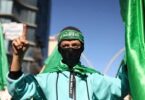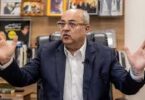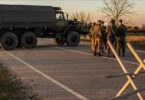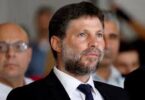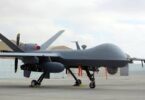SAIPAN, Northern Mariana Islands/CANBERRA (Reuters) : WikiLeaks founder Julian Assange walked free on Wednesday from a court on the U.S. Pacific island territory of Saipan after pleading guilty to violating U.S. espionage law, in a deal that allowed him to head straight home to Australia.
His release ends a 14-year legal saga in which Assange spent more than five years in a British high-security jail and seven years in asylum at the Ecuadorean embassy in London battling extradition to Sweden on sexual assault allegations and to the U.S., where he faced 18 criminal charges.
Those charges stemmed from WikiLeaks’ release in 2010 of hundreds of thousands of classified U.S. military documents on Washington’s wars in Afghanistan and Iraq – one of the largest breaches of secret information in U.S. history.
During a three-hour hearing in Saipan, Assange pleaded guilty to one criminal count of conspiring to obtain and disclose classified national defence documents but said he had believed the U.S. Constitution’s First Amendment, which protects free speech, shielded his activities.
“Working as a journalist I encouraged my source to provide information that was said to be classified in order to publish that information,” he told the court.
“I believed the First Amendment protected that activity but I accept that it was … a violation of the espionage statute.”
Chief U.S. District Judge Ramona V. Manglona accepted his guilty plea, noting that the U.S. government indicated there was no personal victim from Assange’s actions.
She wished Assange, who turns 53 on July 3, an early happy birthday as she released him due to time already served in a British jail.
While the U.S. government viewed Assange as reckless for putting its agents at risk of harm by publishing their names, his supporters hailed him as a hero for promoting free speech and exposing war crimes.
“We firmly believe that Mr. Assange never should have been charged under the Espionage Act and engaged in (an) exercise that journalists engage in every day,” his U.S. lawyer, Barry Pollack, told reporters outside the court.
He said WikiLeaks’ work would continue.
Assange’s UK and Australian lawyer Jennifer Robinson thanked the Australian government for its years of diplomacy in securing Assange’s release.
“It is a huge relief to Julian Assange, to his family, to his friends, to his supporters and to us and to everyone who believes in free speech around the world that he can now return home to Australia and be reunited with his family,” she told reporters outside the court.
Assange, left the court through a throng of TV cameras and photographers without answering questions, then waved as he got into a white SUV.
He left Saipan on a private jet to the Australian capital Canberra, where he is expected to land around 7:30 p.m. (0930 GMT), according to flight logs.
“That Julian can come home to Australia and see his family regularly and do the ordinary things of life is a treasure,” his father, John Shipton, told Reuters in Canberra, where he was waiting for his son’s return.
“The beauty of the ordinary is the essence of life.”
LONG SAGA
Assange had agreed to plead guilty to a single criminal count, according to filings in the U.S. District Court for the Northern Mariana Islands.
The U.S. territory in the western Pacific was chosen due to his opposition to travelling to the mainland U.S. and for its proximity to Australia, prosecutors said.
Dozens of media from around the world attended the hearing, with more gathered outside the courtroom to cover the proceedings. Media were not allowed inside the courtroom to film the hearing.
“I watch this and think how overloaded his senses must be, walking through the press scrum after years of sensory depravation and the four walls of his high security Belmarsh prison cell,” Stella Assange, the wife of WikiLeaks founder said on social media platform X.
Politicians in Australia who had campaigned for his release raised concern about the guilty plea on U.S. soil, saying he was a journalist who had been convicted for doing his job.
“That is a really alarming precedent. It is the sort of thing we’d expect in an authoritarian or totalitarian country,” said Andrew Wilkie, an independent lawmaker who led a parliamentary group advocating for Assange.
Assange spent more than five years in what Judge Manglona called one of Britain’s harshest prisons and seven years holed up in the Ecuadorean embassy in London as he fought extradition.
While stuck at the embassy he had two sons with his partner, Stella, who had been one of his lawyers. They married in 2022 at the Belmarsh prison in London.
The Australian government pushed hard for his release and raised the issue with the United States several times.
“This isn’t something that has happened in the last 24 hours,” Prime Minister Anthony Albanese told a news conference on Wednesday.
“This is something that has been considered, patient, worked through in a calibrated way, which is how Australia conducts ourselves.”


